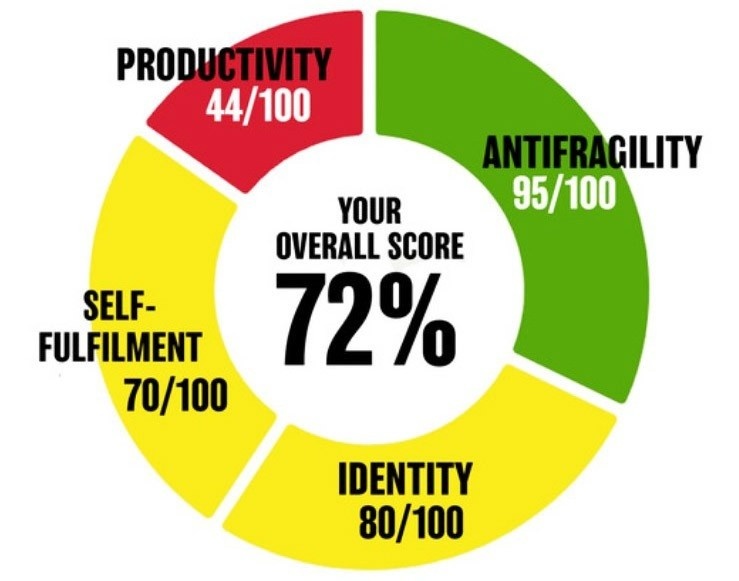This episode will teach you three secrets to keep your motivation where it needs to be so that you can realize your full potential in work and life.
KEY POINTS
Flip The Script! – Focus on starting rather than finishing. If you just focus on starting, the finishing will take care of itself.
Act like a Professional – A professional knows that action generates feeling whereas an amateur believes feeling generates action.
Clearly Define the Value – Ask yourself, “What benefit does this goal have for me, what benefit does it have for others?” Clarity promotes motivation.
Use Evidence – Reference a similar challenge you or someone else faced as evidence that you can complete what you started.
Minimize impulsivity – Reduce your likelihood of being distracted. Remove the environment that distracts you, e.g. your phone or devices.
Minimize Delay – Break down your goal small enough so that you taste success sooner and stay motivated. If it’s too far off in the distance, you are less likely to stay motivated in the long term.
Create Accountability – Not only with yourself but also with the help of others. Break down your goal into something that you can do daily and something you can track. Put it up on a wall and put an X in every single day that you do the activity that you are trying to stay motivated towards
TRANSCRIPT
Would you like to know how to stay motivated? Well, by the end of this episode, you’ll learn three secrets to keep your motivation where it needs to be so that you can realize your full potential in work and life.
Hi, my name is Eric Partaker and I’ve been recognized as one of the top entrepreneurs in the country, as well as the CEO of the year. And I’m also the author of two best-selling books, including The 3 Alarms.
So the number one thing that you need to do to stay motivated is flip the script, things are often the opposite of what you think them to be. So the first thing in this department is to always focus on starting rather than finishing. When we say to ourselves, I have to finish something, it immediately feels overwhelming. You’re using language of like oppression, you have to do something, you have to finish it and finishing can feel like completely endless. And it’s much more empowering to instead use the language I choose to start for just five minutes. That is a way to stay more motivated because when you choose, you don’t need to want to, or like doing it but you’re also not having to do it. You’re just making a choice. And by choosing to start rather than finish while starting can take just a second, whereas finishing can be endless. And by just using those words for just five minutes, it makes it feel all the less daunting.
Now the truth is when I get started on something and I choose to start for just five minutes, I never know when the five minutes go by. So first secret here with flipping the script is don’t focus on the finish focus on the start instead, because if you just focus on starting the finishing will eventually take care of itself.
The other thing that you can do with regards to flipping the script is to view correctly action versus feeling. And I want you to take a professional versus an amateur mindset here because an amateur believes that feeling generates action. Whereas, a professional knows that action generates feeling so often. You may not feel motivated in the moment to do a particular thing, but if you just are acting those feelings of motivation start to develop. It’s sort of like you’re pushing a big boulder and then as it starts to go down the hill it starts to gain momentum and gets a speed of its own. But don’t wait around to feel like doing things instead, choose to start for just five minutes and then that act of taking action will typically generate the momentous feeling that you need to keep going with whatever it’s doing. So number one was flipping the script.
The number two way to stay motivated is to recognize that there is a science to motivation and an equation that underpins that science and that equation says that there’s two things that we need to maximize. And two things that we need to minimize in order to stay motivated. The two things that we need to maximize is the value of whatever it is that we’re working on, so we need to clearly define what’s the why here? Why are we working on it? What benefit does it have for us? What benefit does it have for others? And then we also need to maximize the expectancy, which is just a complicated way of saying our self-belief and being able to do whatever that thing is. And there’s multiple ways that you can increase your expectancy or yourself belief.
One is for example, referencing something in the past that maybe had a similar challenge or difficulty level that you could use as a reference point to indicate to yourself that you’re capable of doing whatever it is that you’re working on in the moment. You could also be looking at other people who have achieved a similar thing to whatever you’re working on as evidence that if others have done it so can I. And then last but not least, you might want to enlist the support of other people around you to support and help you and make you believe or help you with that self-belief, that expectancy to get the job done.
So maximize the value and the expectancy. And as I said, there’s two things we also need to seek to minimize and they include our impulsivity, which is just a complicated way of saying we need to minimize our likelihood of being distracted. So if there’s something you want to stay particularly motivated to work on, well, the worst thing you can do is to do that work in an environment that distracts you, or especially with anything that, you are prone to distraction with such as your phone or any other device or thing that’s within eyesight. So out of sight, out of mind, anything that might distract you or lead to more impulsive behavior, get that out. We want to minimize that stuff to increase and maintain our motivation.
Then the last thing in the motivation equation that we want to minimize is what they referred to as delay. Delay is simply the amount of time it takes from where we are right now today to our first taste of success on our way to achieving whatever the goal is. So if we want to increase our motivation, what we should do is chunk down that goal small enough so that we taste success, we taste our first milestone sooner rather than later, because if it’s too far off in the distance, that first opportunity, that first taste of success, we’re unlikely to stay motivated or less likely to stay motivated in the longterm.
So in summary to increase our motivation, number two was respect the motivation equation. It will help us stay motivated, maximize the value of what you’re doing, the expectancy as well, and minimize the impulsivity and the delay.
Last but not least, to stay motivated we need to create accountability. And how do we create accountability? While we can create accountability with ourselves and with the help of others. And I’ll give you an example of how you can create accountability for yourself. If there is something that you are working on that is particularly important to you to stay motivated towards, then I’d like you to think about how can you break down whatever that goal is into something that you can do daily and something that you can track. So for example, if you want to get into better shape, well then what’s the minimum amount of exercise, even if it was just stretching that you could do on a daily basis. And can you put that up on the wall, perhaps in the form of a calendar where you just put an X in every single day that you do the activity that you’re trying to do to stay motivated towards. And your simple game is don’t break the streak as many Xs as possible. And if you do fall down, that’s okay, but just make sure you rebound, never two misses in a row.
The last thing that you can do with regards to accountability is also having an accountability partner, accountability partner could be a friend, a family member, a team member, but it needs to be somebody that you’ll reliably meet once a week, make your commitments about what you’re going to be working on in the week ahead and also report against your progress for what you worked on the previous week.
So in summary, flip the script, respect the motivation equation and tap into the power of accountability with yourself and through another person. And I’d love to hear from you. So don’t forget to leave a comment and a rating as well. And if you’d like to get a copy of my new book, The 3 Alarms, please head over to my website at ericpartaker.com, that’s E-R-I-C, ericpartaker.com, where you can pick up a free digital copy of my new best-selling book, The 3 Alarms.




